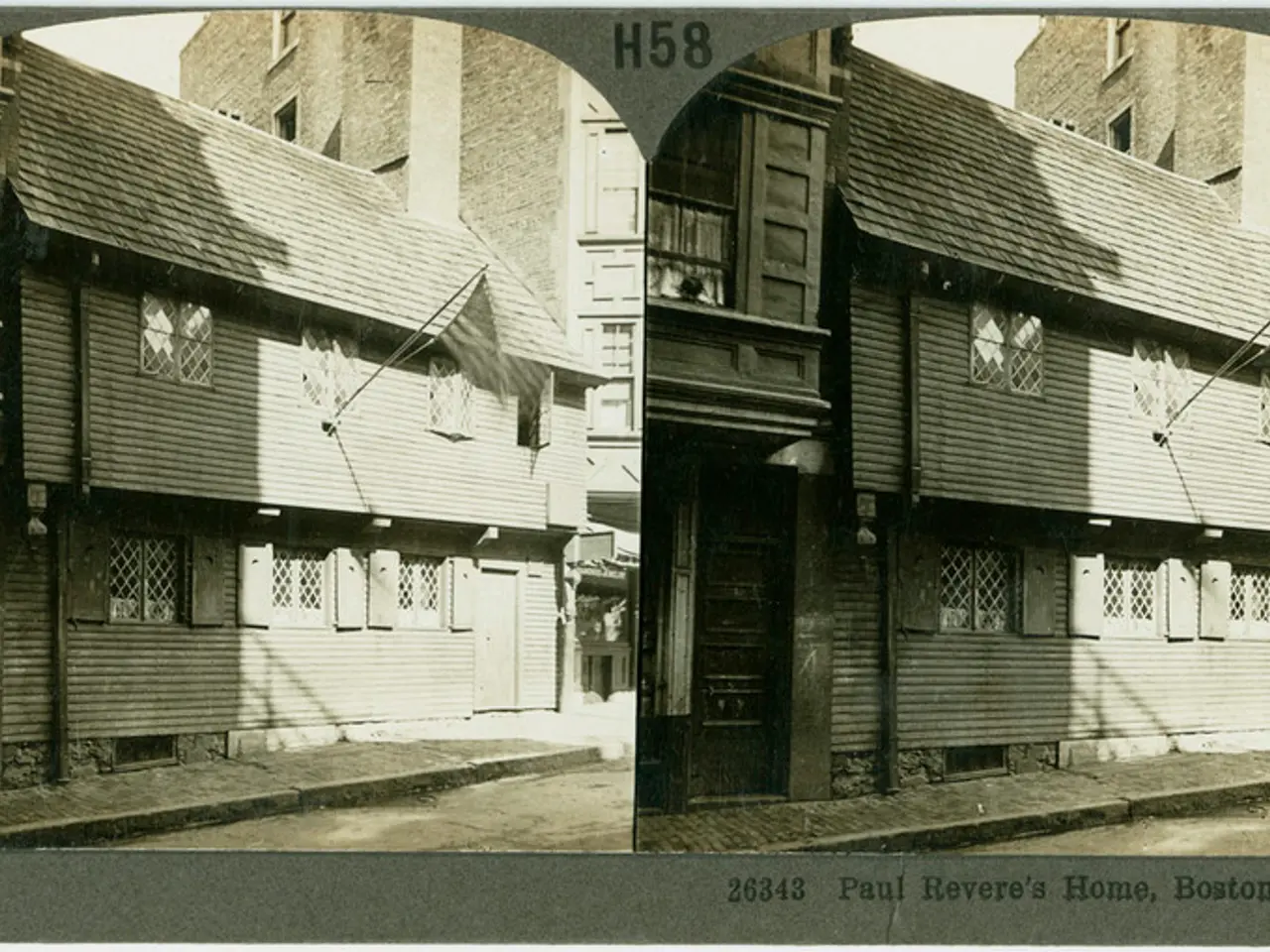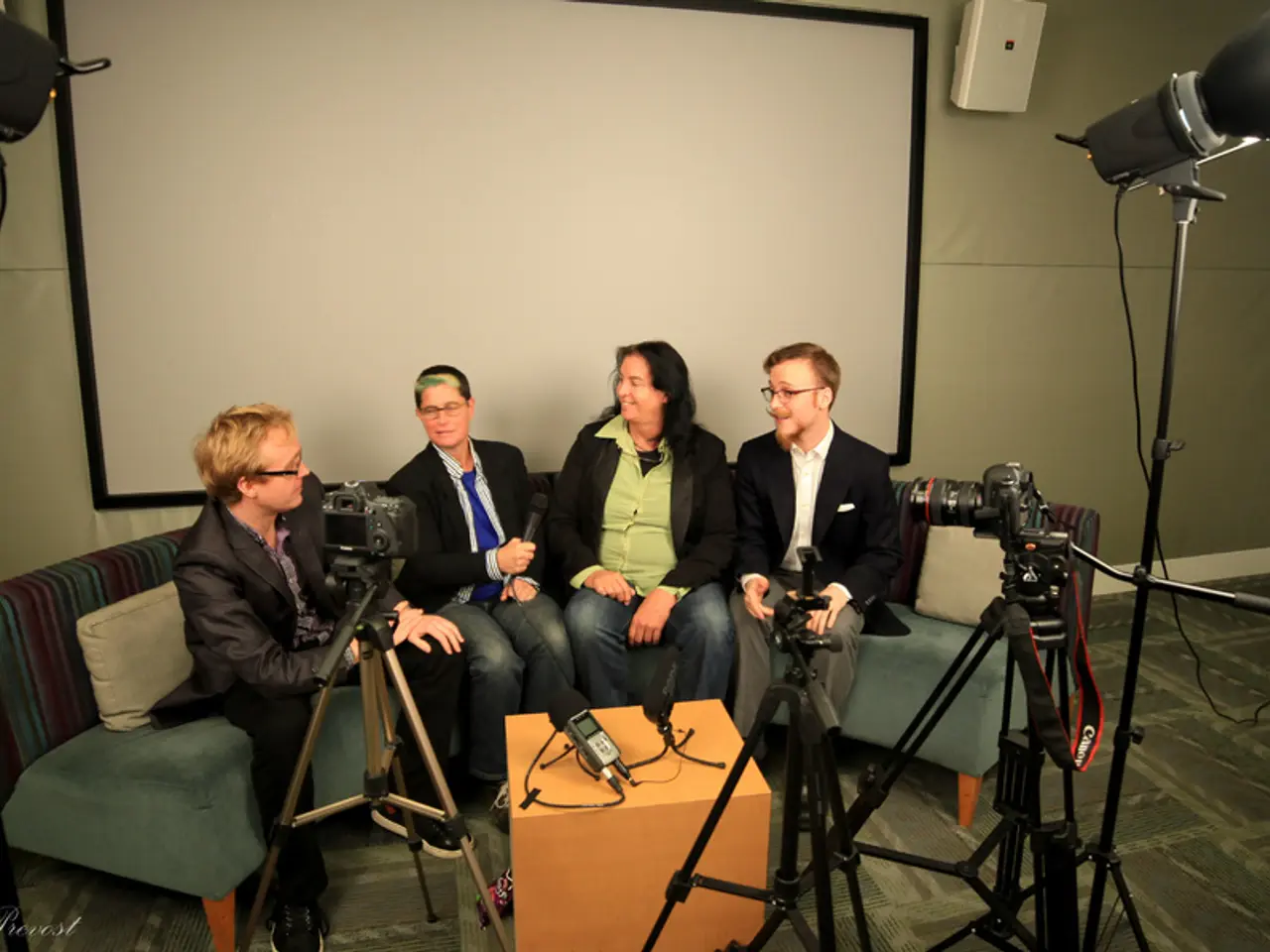Ongoing search for Iranian hitman confirmed by Dutch security officials
Iran's long-standing tradition of assassinating dissidents and opponents in Europe continues to pose a significant threat, with recent incidents involving Iranian regime opponents, Arab separatist leaders, supporters of opposition groups, Israelis, and Jews in Europe.
The Dutch General Intelligence and Security Service has strong indications that Iran was involved in the assassination attempt in June 2024 in the city of Haarlem of activist Siamak Tahmasbi. This incident follows a series of similar attacks, including the assassination of Ahmad Mola Nissi in The Hague in 2017, the targeting of leaders of the Arab separatist group ASMLA in 2018, and multiple attempted assassinations or kidnappings on British soil.
Notably, several plots targeting Israeli and Jewish communities in Paris, Munich, Berlin, and a 2022 attempted synagogue arson in Düsseldorf, have been linked to Iranian Revolutionary Guard Corps (IRGC) and Ministry of Intelligence (MOI) operations, sometimes employing European criminal gangs like the Hells Angels.
The Dutch report, titled "Threat Assessment State Actors 2025," published earlier this month, focuses on threats posed by countries including Russia and Iran on Dutch security interests. The report also highlights the involvement of Iranian intelligence bodies in extrajudicial killings, as well as the use of foreign criminal groups for terrorist operations and assassinations in Europe.
The European Union's listing of eight persons and one entity for their roles in extrajudicial killings of Iranian critics, announced on July 15, is an attempt to ramp up pressure on Iran for its involvement in these heinous acts. The Zindashti Network criminal group and associates were listed for their involvement in the assassination of Iranian dissident Masud Molavi Vardanjani in 2020 in Turkey.
The Dutch Foreign Affairs Ministry summoned Iran's ambassador over its involvement in the murder of dissidents on Dutch soil, and multiple European countries, including the Netherlands, Denmark, France, Germany, Finland, Sweden, and the UK, actively monitor and investigate Iranian plots. Investigations have led to arrests, indictments, expulsions of diplomats, and sanctions against Iranian intelligence entities.
The EU and US have imposed sanctions on Iranian intelligence bodies and criminal networks used as terrorist proxies in Europe, highlighting the threat to European internal security. British and Finnish intelligence have reported increased Iranian espionage and targeting of dissidents, with Sweden’s intelligence emphasizing the involvement of organized crime networks linked to Iran.
Cases involving foreign criminal groups such as the Hells Angels have been linked to Iranian-directed operations for terrorism and assassinations in Europe. The arrest of Mehrez Ayari, a French-born 38-year old with Tunisian citizenship, in connection with the Haarlem assassination attempt, suggests a pattern of Iran hiring professional hitmen.
The historical context includes the “chain murders” of the late 1980s to 1990s, where over 80 dissident intellectuals were killed in Iran by government operatives through staged accidents and assassinations. This was publicly exposed in the late 1990s but the Iranian government denied responsibility and framed it as the work of “rogue elements.” Official investigations led to convictions of some intelligence agents, though these trials were criticized internationally as insufficient.
In summary, Iran’s covert assassinations and repression of dissidents in Europe are ongoing, involving both direct intelligence operatives and proxy criminal groups. Investigations across European countries and coordinated international sanctions reflect a high level of concern and ongoing efforts to counteract these deadly plots.
- The Dutch General Intelligence and Security Service has suggested that Iran was associated with the attempted assassination of Siamak Tahmasbi in Haarlem, an incident that echoes a series of similar attacks, such as the assassination of Ahmad Mola Nissi in The Hague in 2017 and multiple attempted assassinations or kidnappings on British soil.
- Not only have several plots targeting Israeli and Jewish communities in cities like Paris, Munich, Berlin, and Düsseldorf been linked to operations by the Iranian Revolutionary Guard Corps (IRGC) and Ministry of Intelligence (MOI), but these operations sometimes utilize European criminal gangs like the Hells Angels.
- The Dutch report, titled "Threat Assessment State Actors 2025," identifies threats posed by countries including Russia and Iran to Dutch security interests, and it underscores the involvement of Iranian intelligence bodies in extrajudicial killings, as well as the use of foreign criminal groups for terrorist operations and assassinations in Europe.
- The European Union's listing of eight persons and one entity for their roles in extrajudicial killings of Iranian critics, announced on July 15, aims to exert pressure on Iran for its complicity in these heinous acts, including the assassination of Iranian dissident Masud Molavi Vardanjani in 2020 in Turkey.
- The European Union and the US have imposed sanctions on Iranian intelligence bodies and criminal networks used as terrorist proxies in Europe, indicating a serious concern for European internal security, especially as investigations reveal increased Iranian espionage and targeting of dissidents in countries like Sweden and Finland, sometimes with the collaboration of organized crime networks linked to Iran.







